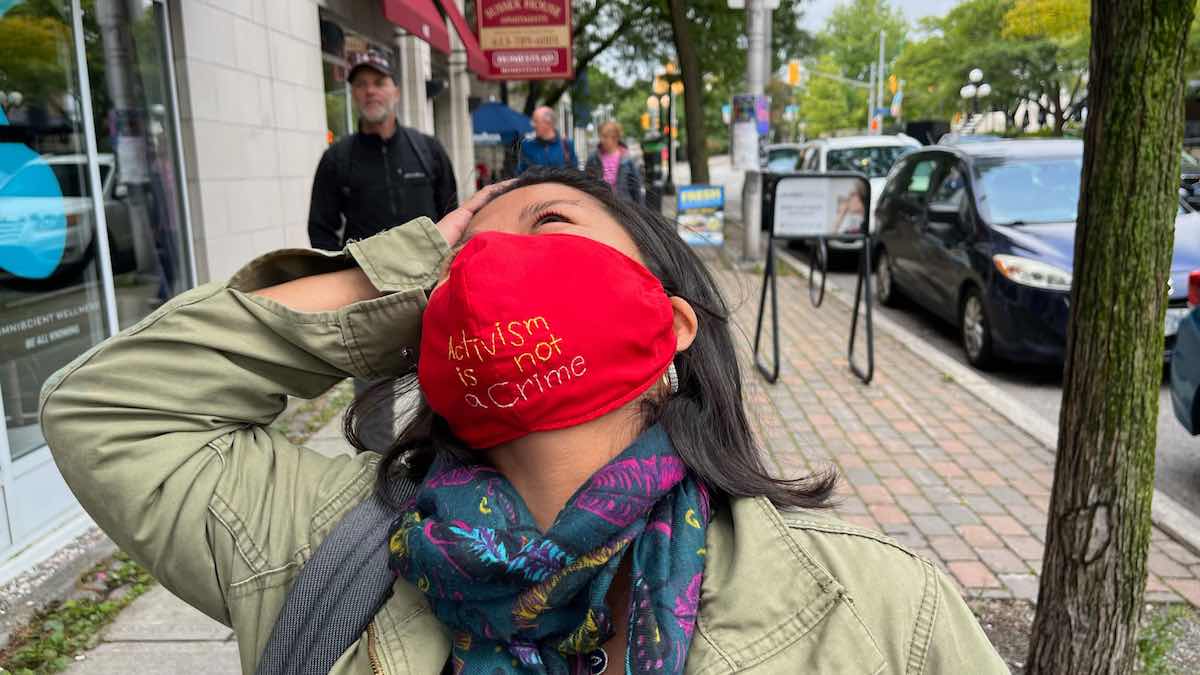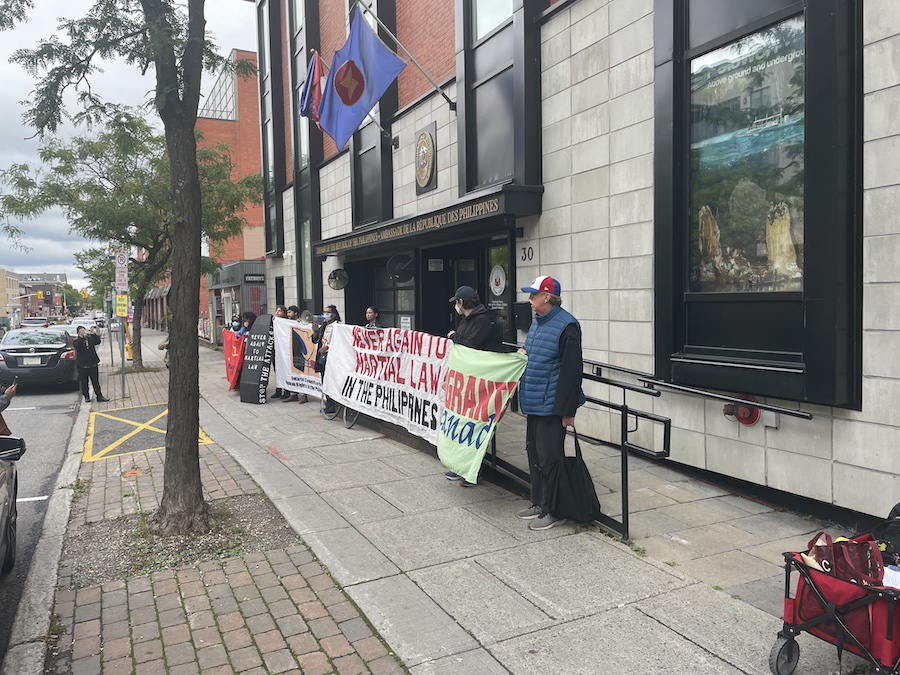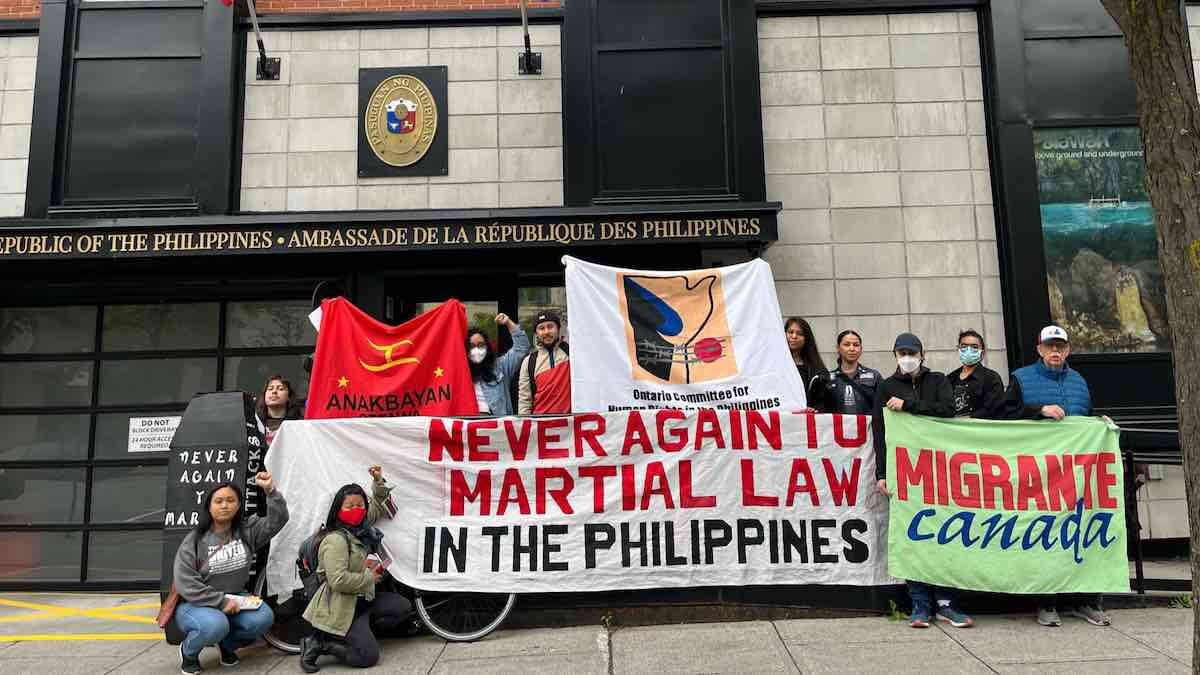The air filled with chants outside the Philippines Embassy in the Byward Market on Sept. 20 as protesters gathered to mark the 50th anniversary of the 1972 imposition of martial law in the island nation and to condemn the country’s new president — Ferdinand “Bongbong” Marcos Jr., son of the former dictator.
Marcos Jr. was elected on June 30, 36 years after a people’s uprising ousted his father, Ferdinand Marcos Sr., who had ruled Philippines with an iron fist from 1965 to 1986, including nearly a decade under martial law from 1972 to 1981.
Charlene Herrera, secretary-general of Anakbayan Ottawa and an organizer of the protest, said she never experienced the repression of martial law but has heard stories about what it was like from Filipino survivors in “exile” in Canada.
“My hope is that the next generation does not forget the legacy of martial law, that people did die, that people were disappeared and (even) now we don’t know where they are.”
— Aimee Beboso, chair of Migrante Ottawa
“They would tell these very vulnerable stories that detailed (their) torture . . . of their families being in the line of getting killed, and you can’t really ignore that,” said Herrera. “When Marcos Jr.’s is saying… ‘I think my father was in the right, he didn’t do anything wrong,’ It feels like a slap in the face for a lot of the survivors who are still alive today.”
Looking back to when she was young, Aimee Beboso, chair of Migrante Ottawa and another protest organizer, said she still recalls the effects of martial law.
“I thought that it’s normal that, you know, you have curfews,” said Beboso. “Only later when I . . . came to Canada and studied Philippine history some more, (did I) realize that curfew is not normal.”

[Photo © Emma O’Toole]
Beboso said she is also concerned about Marcos Jr.’s own legacy.
“He was old enough. He was even in politics by then, when his father … was in power and had declared martial law. So, the fruits of his father’s tyranny helped him put where he is,” she said.
For Herrera, the Ottawa protest was to raise awareness about the current political situation in the Philippines, which is not closely followed in Canada and many other countries.
“That’s why this human rights abuse in the Philippines can happen or is happening under the radar,” said Herrera.
She said she also hopes to show that there are progressive Filipinos in Canada who reject Marcos Jr. and wants their voices to become more widely heard.
“We want to say that we are here, we can fight, we can struggle together — there is a future to win for all of us,” said Herrera.
Beboso said she hopes there will be a “reawakening” of interest in the recent history of the Philippines and serious reflection within the Filipino-Canadian community on the era of martial law, the suppression of human rights and the latest threat to freedom in the country.

“It has an impact on the future generations of the Philippines, whether in the Philippines or in the Filipino diaspora,” said Beboso.
Douglas Booker, co-coordinator for the International Coalition for Human Rights in the Philippines, shared a similar sentiment.
“I think we’re still living the legacy of the first Marcos dictatorship. … Essentially, the first Marcos dictatorship institutionalized the role of the military in society,” said Booker.
He added that during the people’s uprising in the 1980s, Marcos Jr. was even advocating for his father to open fire on the crowds.
“I don’t have a great deal of confidence that he is an ardent supporter of democracy, who will lead the Philippines forward into a new golden age,” said Booker. “The fact remains that he’s a convicted felon in the Philippines. He’s a convicted felon in the United States, and his family has used the Philippines as their own personal ATM and stolen billions of dollars.”
Beboso said hope for the future of the Philippines shouldn’t be lost because if it is, then there would be no struggle for change and a better society. People need to unite and rally around the ideals of respecting human rights, she said.
“My hope is that even the next generation does not forget the legacy of martial law, that people did die, that people were disappeared, and (even) now we don’t know where they are,” said Beboso.




